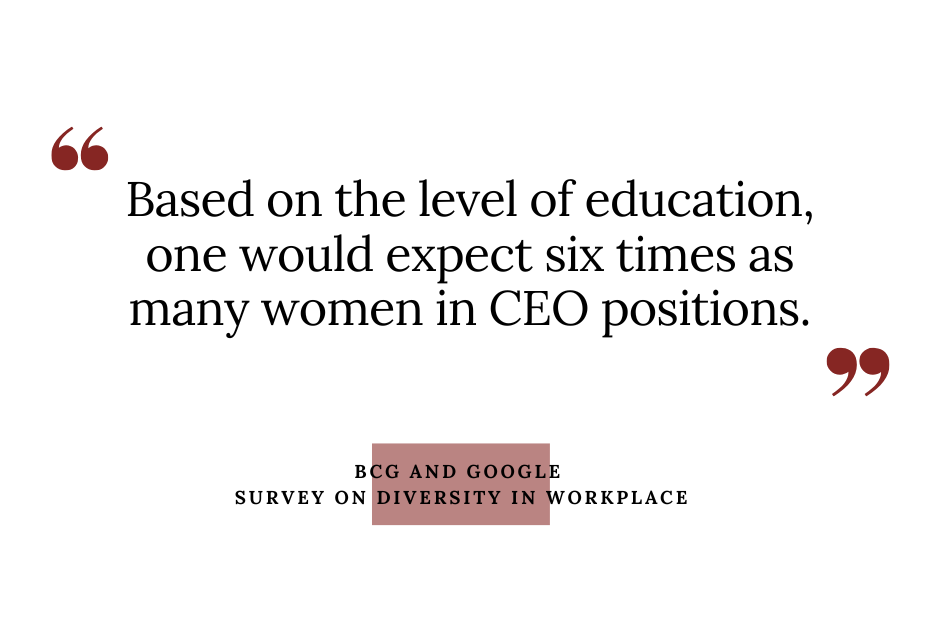The Belgian labour market suffers from a severe lack of diversity, especially in management positions, which is a missed opportunity in economic and social progression, a recent study found.
The employment rate of women is eight percentage points lower than that of men, a trend that is also present in terms of ethnic diversity, the survey, conducted among the management of the 100 largest Belgian companies and 1,000 employees by Boston Consulting Group (BCG) and Google, highlighted.
"Based on the level of education, one would expect six times as many women in CEO positions," BCG and Google noted in the survey report. Instead, women occupy only 9% of these positions in Belgium. At the level of management committees, only 18% of the positions are held by women.
Meanwhile, just 2% of these are filled by non-white people. Overall, the participation of people born abroad in the labour market is about 13 points lower than Belgian-born people. This was recently highlighted by another study, which showed that the Belgian employment rate for non-EU nationals in Europe was the lowest of all countries.
The survey found that diversity is mostly represented in support functions, such as human resources, legal or finance.
Non-effective policies
Both companies argued that the survey results show that, although half of the large Belgian companies have set up "diversity, equity and inclusion" (DE&I) programmes, these are not very effective. "It turns out that leaders tend to overestimate the effectiveness of existing programmes, and underestimate the challenges that lie ahead."
When looking solely at age among the chair position of a company's board or managing director, more than half (55%) of CEOs (both chair and director) are over 55 years old, while this age group represents only 33% of the working population.
This is even more worrying when considering that women, people from non-Belgian backgrounds and members of the LGBTQ+ community are far more aware than heterosexual men over 45 of the barriers to diversity in their organisations. Young people too, are more critical of their company's progress in this area than senior workers.
Key in recruitment of young people
According to both companies, this is why companies need to keep an eye on the levels of diversity in their recruitment policy as "young talent gives three times more importance to DE&I criteria than the previous generation when choosing a new employer."
Related News
- New legislation makes Belgian labour market more accessible to migrants
- Covid-19 reduced gender wage gap, but not for the right reasons
State Secretary for Recovery and Strategic Investments Thomas Dermine said during an event on diversity in the workplace that the overall conclusion of the report is clear.
"We — and by that I mean the leaders of all administrations, both public and private — still have a lot of work to do to bring about a positive change in diversity, equality and inclusion (DE&I) in the Belgian workforce."


